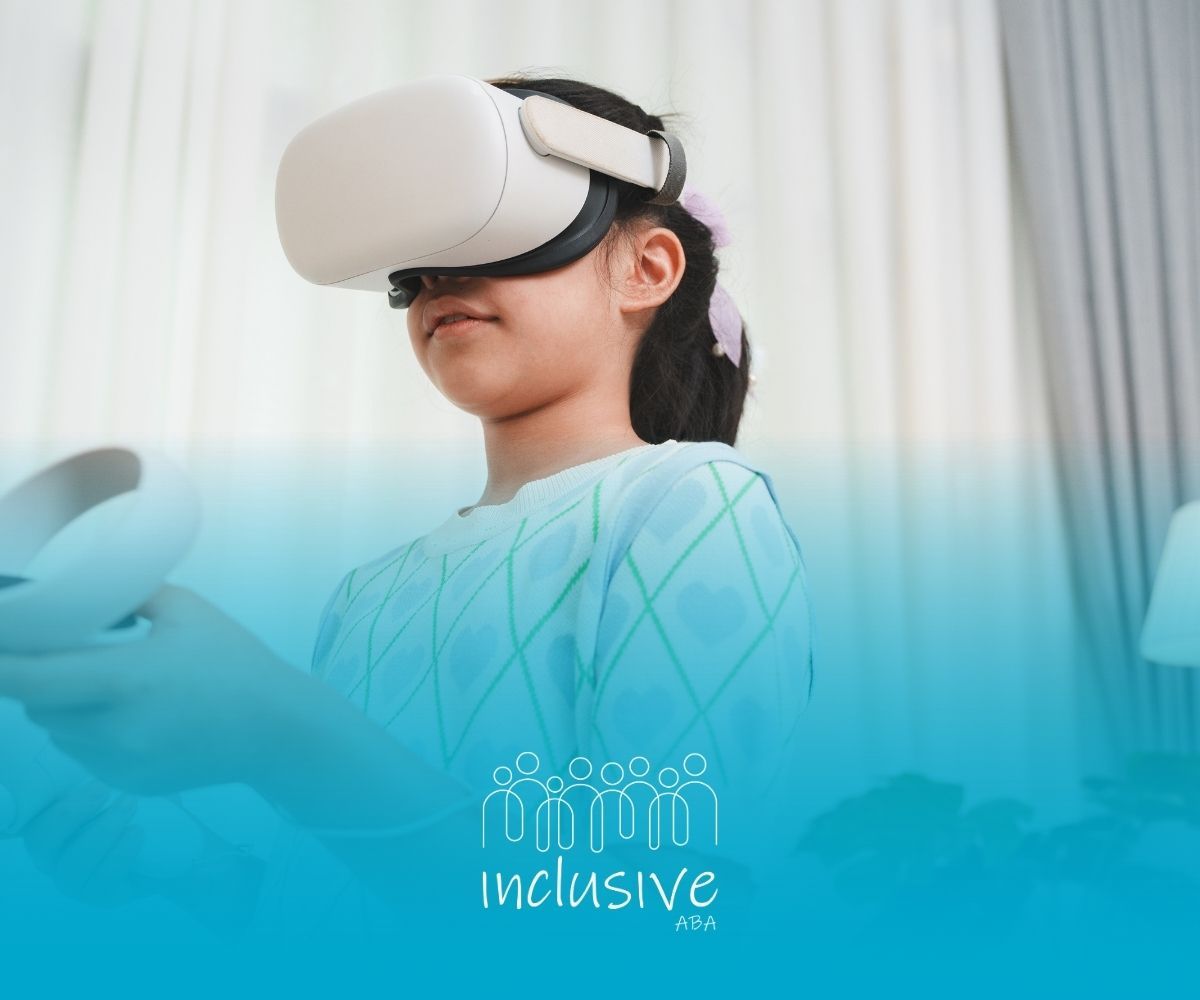Exploring Autism Employment: Success Stories and Challenges
Autism spectrum disorder (ASD) is a condition that affects how people socialize, communicate, and connect with their surroundings. Autistic adults often face unique difficulties when it comes to finding jobs, but many succeed in workplaces that focus on inclusion and support. Companies that welcome neurodiversity can tap into great potential from their teams. At the same time, autistic workers find chances for personal development and satisfaction. This blog looks into the experiences of autistic people in the job market. It discusses the challenges they encounter and highlights their successes.
Understanding Autism in the Workplace
Autism spectrum disorder affects how people behave and see social situations. This can make finding a job harder. Autistic workers may find regular office settings tough because of sensory issues, social cues, and communication problems. Still, it is important to recognize their special strengths, like being detail-oriented and having great problem-solving skills.
Employers should work to create open and accepting workplaces. By understanding autism in work settings, they can make better adjustments, encourage teamwork, and help both their workers and businesses succeed.
Defining Autism Spectrum Disorder (ASD)
Autism Spectrum Disorder (ASD) includes different developmental disabilities. These disabilities create difficulties in social interaction, communication, and behavior. The DSM-5 shows that there are various levels of ASD, indicating different degrees of severity. Young adults with autism may face special challenges, particularly when moving from high school to postsecondary education or starting their first job. Service providers, employers, and policymakers need to understand this spectrum. This knowledge helps them create supportive environments. By doing so, they can promote workplace inclusion and meet the needs of autistic people.
Common Misconceptions About Autism
There are common misunderstandings about autistic people that can limit their chances. For example, many people wrongly think of the autism spectrum as only low abilities. Autistic individuals have unique strengths and talents that people often overlook.
Misconceptions also happen with social cues. Autistic people might find it hard to read body language or tone. This can make others feel they are uninterested or rude. Such judgments can harm workplace relationships and make teamwork harder.
Additionally, many think that autistic individuals completely avoid social interaction. However, they just communicate differently. With patience and awareness, we can build meaningful connections. It is important to change these myths to create workplaces that see the true potential of autistic employees.
Success Stories of Autistic Employees
Autistic individuals are making great contributions in many industries. They offer new ideas and work hard. Companies that support neurodiversity see better efficiency, creativity, and problem-solving skills in their teams.
Many success stories show how workplace accommodations, such as quieter spaces, flexible hours, or sensory-friendly changes, can have a big impact. These adjustments help autistic workers do very well in their jobs. They gain job satisfaction and also help change how people view disabilities in the workforce.
Case Studies of Successful Career Paths
Vocational rehabilitation programs are important in helping autistic people find good jobs. Organizations like Autism Speaks support changes that include everyone. They share success stories like that of Dr. Temple Grandin. She is a well-known speaker and leader in animal science who overcame social challenges to succeed in her work.
Another good example is the supported employment programs at Virginia Commonwealth University. These programs show how personalized help allows autistic individuals to do well in their careers. Programs like these prove that with the right accommodations, the workforce can benefit, and people's dreams can be achieved.
These examples send a strong message: autistic individuals can build rewarding careers when they have the right help. This changes the way employers and friends view their abilities and challenges.
Contributions to Various Industries
Autistic employees are making a big difference in areas like technology, healthcare, and creative arts. In technology, they bring great focus and organized thinking. This helps drive growth in programming and data analysis.
In business, the ideas from autistic workers help improve problem-solving and add fresh views on how things work in the workplace. Business leaders see how having a diverse group strengthens their workforce. It improves retention rates and boosts teamwork.
Healthcare and education gain from the commitment of autistic people and their skill to adapt. Their work encourages companies and schools to use inclusive hiring practices. This helps strengthen the job market for neurodiverse individuals.
Challenges Faced by Autistic Individuals in Employment
Many autistic people have a lot to offer in the workplace. However, they still face challenges when it comes to jobs. Dealing with social situations and building relationships at work can disrupt their experience. This often leads to misunderstandings or leaving them out.
Also, loud noises and bright lights in regular office settings can be too much for some. This sensory overload makes it hard for them to stay focused and be productive. To help both employers and employees, it is important to create helpful workplace accommodations and have inclusive policies in place.
Navigating Social Interactions at Work
Strong social skills at work can be difficult for autistic employees. They often misread social interactions. This can lead to misunderstandings with coworkers or their supervisors. For example, they might have trouble picking up on subtle body language, tone of voice, or group behavior.
These issues can also lead to unfair views, like thinking someone is shy or distant. However, having open talks and training about neurodiversity can help close these gaps and support teamwork.
Coworkers can make a big difference by being patient and supportive. This helps everyone thrive without fearing judgment. Clear communication is important too. It not only lowers conflicts but also improves understanding between team members.
Sensory Overload in Traditional Work Environments
Sensory overload is a big problem for autistic people. It can make it hard for them to focus in regular work settings. Things like flickering lights, loud noises, or crowded places can get in the way of their work and well-being.
Making adjustments in the workplace can help. Options like quieter work areas, noise-cancelling headphones, or lights that can be changed lessen these challenges a lot. Companies like JAN (Job Accommodation Network) offer help to create sensory-friendly spaces that support neurodiverse workers.
Employers who want a diverse workplace need to pay attention to these sensory needs. This makes it easier for autistic people to feel comfortable and do their best work.
Strategies for Inclusive Hiring Practices
Building inclusive hiring practices is about making systems and jobs that welcome neurodiverse employees. Companies that care about workplace inclusion train their teams to support autistic workers well.
Human Resources departments play an important role in this. They create clear job descriptions and make onboarding steps that fit neurodiverse hires. Organizations that change their hiring strategies help their workforce to work together and be creative.
Role of Human Resources in Supporting Diversity
Human Resources is important for promoting inclusion at work and supporting diversity efforts. By focusing on neurodiversity, HR can create hiring practices that help autistic job seekers find jobs more easily.
Key areas where HR can help:
- Making clear job descriptions that attract different candidates.
- Providing training for coworkers to understand challenges related to the autism spectrum.
- Ensuring there are clear ways to speak up about concerns or ask for help with accommodations.
When HR has inclusive policies, it improves workplace dynamics. This allows talented people to succeed in their roles with the support of their colleagues.
Creating Autism-Friendly Workspaces
Autism-friendly workspaces help workers by meeting their specific needs. Changes like better lighting, lower noise levels, and sensory-friendly designs can reduce sensory overload in modern offices.
By understanding neurodiversity, companies such as Virginia Commonwealth University show that inclusive workplaces can improve morale and productivity. Making special accommodations helps all workers, including those with autism, feel comfortable and able to give their best effort.
Employers who support workforce diversity set a good example in the industry. They show that simple changes can lead to strong team dynamics.
Legal Framework and Rights
Legal protections are very important for helping autistic people get fair access to jobs. Laws like the Americans with Disabilities Act (ADA) require that workplaces provide accommodations, which keep their rights safe.
Also, advocacy is key in spreading the word about these protections to businesses. Knowing about ADA compliance helps employers promote inclusion. This support enables autistic employees to reach their full potential.
Understanding ADA Compliance
| ADA Element | Description |
|---|---|
| Definition | Ensures equal opportunity and prohibits employment discrimination. |
| Accommodation Requirements | Employers must provide reasonable modifications for qualified disabled workers. |
| Scope of Protection | Covers accessibility, hiring practices, and workplace settings. |
ADA compliance guarantees job accommodations and legal protections for autistic individuals. Employers who adhere to these standards support diversity while avoiding discriminatory practices.
By embracing ADA principles, businesses can ensure workplace inclusion and foster a positive environment for all team members.
Advocacy Groups and Their Impact
Organizations like the Autism Society work hard for employee rights. They also inspire policymakers to make changes that help autistic workers. These groups provide important resources like planning tools and workshops to help with getting ready for jobs.
Their efforts also teach employers about the good things that come from creating inclusive workplaces. They highlight how diversity can boost new ideas. Policymakers make changes to laws and policies based on advice from these groups. This helps ensure full support for neurodiverse communities.
Advocacy is very important in the employment journey for autistic people. It helps them grow and thrive with confidence.
Conclusion
In conclusion, looking at autism employment shows a mix of success and challenges. Understanding Autism Spectrum Disorder (ASD) helps employers build a friendly workplace that values diversity. The success stories of autistic workers show their special skills in many industries. This highlights how important it is to have good hiring practices and autism-friendly workspaces. But there are still challenges, like learning to interact socially and dealing with sensory overload. These need attention to make workplaces truly inclusive. By using smart strategies and supporting legal protections, we can create more chances for autistic people in the workforce.
At Inclusive ABA, we believe in empowering individuals with autism to reach their fullest potential, both in therapy and beyond. Our tailored ABA therapy programs provide the foundation for success in various aspects of life, including the workplace. With our dedicated team, we help individuals develop the necessary skills to thrive in their careers while overcoming unique challenges. Let us guide you and your loved one toward success—reach out today to learn more about our personalized services.
Frequently Asked Questions
What are the best work environments for individuals with autism?
Autism-friendly workplaces understand the importance of balancing sensory inputs. They provide necessary accommodations like private spaces, quiet areas, and flexible schedules. Reducing things that may cause stress, like sensory overload, helps create comfort and improvement in focus. Companies that focus on workplace accommodations support productivity in neurodiverse teams.
How can managers support autistic employees effectively?
Managers can help autistic employees by promoting clear communication. They can offer guidelines for social interaction and put in place strategies for workplace inclusion. Providing accommodations like noise-cancelling headphones and quiet spaces allows employees to do their jobs well with confidence. Awareness helps create better teamwork.
What legal protections exist for autistic workers in the U.S.?
Autistic workers are protected by the Americans with Disabilities Act (ADA). This law requires accommodations at work and stops discrimination. ADA compliance helps give equal chances to all employees and protects their rights. It encourages workplace inclusion across the United States.
Sources
- https://www.nimh.nih.gov/health/topics/autism-spectrum-disorders-asd
- https://my.clevelandclinic.org/health/diseases/sensory-processing-disorder-spd
- https://www.cdc.gov/child-development/about/developmental-disability-basics.html
- https://pmc.ncbi.nlm.nih.gov/articles/PMC8992926/
- https://www.autismspeaks.org/
- https://www.ada.gov/
Looking for Expert Help? We're Here for You!
Our compassionate and skilled team is devoted to enhancing your child's development through customized ABA therapy. Let us partner with you to create a supportive environment for your child's success.
Discover how we can help your family thrive with expert ABA therapy.
Related Posts







